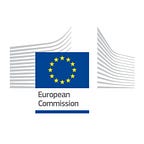In Mosul, Making the Difference Between Life and Death
Volunteer medics on the frontline.
Amid the constant rattle of gunfire and the terrifying thuds of mortars and artillery shells, a team of civilian volunteer medics receives a steady stream of patients injured in the fierce battle for Iraq’s second largest city, Mosul.
Out in the open and by the side of a road, this small aid station is the first point of treatment for the many civilians injured in clashes between the Iraqi army and ISIS militants.
Two-year-old Omar cries in pain as one of the volunteers, a Norwegian doctor*, removes shrapnel fragments from the back of his head. Meanwhile, Omar’s father provides the other medics with the boy’s details.
“He was outside in the street,” the man says, his voice breaking. “Suddenly there was a bombing in our neighbourhood.”
Once Omar is stabilised, he is rushed into an awaiting ambulance that will bring him for further treatment at a field hospital.
“We see a variety of injuries, but gunshot wounds and multiple shrapnel injuries are the most common,” the doctor says as the ambulance speeds south down a stretch of abandoned highway.
The treatment of civilian casualties here is carried out by NYC Medics, a non-profit group supported by the EU through its partner World Health Organization (WHO), together with Iraqi health authorities. The trauma stabilisation point is the first link in a life-saving chain of EU-funded emergency medical services at the frontline that brings patients from point of injury to a network of field hospitals further away from the fighting.
“By providing emergency care at the frontline, we are able to treat people within the ‘golden hour’, the first hour after a critical injury during which medical treatment is most likely to prevent death,” says Javier Rio-Navarro, who oversees EU aid programs in Iraq. “Once the patients are stabilised, they are brought to hospitals for more advanced surgery, post-operative care and rehabilitation.”
Nearly three years after ISIS swept triumphantly across northern Iraq, Iraqi troops backed by the US-led military coalition are tightening the noose around the jihadist group in Mosul, its last major stronghold in Iraq. The human fallout is disastrous; according to the Iraqi government, almost 150,000 people have been displaced since the offensive to retake the western part of the city began last month. Some 700,000 people are believed to be caught in the crossfire inside Mosul and thousands of civilians have been killed or injured in the fighting. Meanwhile, most hospitals in and around Mosul are damaged and unable to provide health services.
“The fighting has destroyed emergency life-saving medical facilities across Nineveh Governorate, particularly in Mosul,” Rio-Navarro says. “There is also a critical shortage of doctors and nurses; they have either been displaced by fighting or remain trapped inside the city.”
Tiba, 11, sustained burns, internal bleeding and a serious eye injury after a mortar round exploded near the road she was fleeing on alongside her parents. After receiving life-saving care at a frontline triage station, she was rushed to a hospital located at a safe distance from the fighting.
Tiba’s mother Asle, who is now recovering alongside Tiba at a hospital in Erbil in Iraq’s Kurdistan region, thought that her daughter was going to die.
“My husband fell down bleeding from his head, but I had to leave him and run to save Tiba’s life,” Asle says. “I’m still not sure what happened to him.”
The hospital, staffed by various health specialists, including surgeons, paramedics and trauma care nurses, is among several facilities financially supported by the European Union, and coordinated by WHO, to deal with the increasing amount of injured as the offensive in western Mosul intensifies. Aside from the larger hospitals in Erbil, there are currently two EU-supported, WHO-run field hospitals operating on the outskirts of Mosul and two more opening up very soon. In the past month alone, the Erbil emergency hospital performed over 250 surgeries on civilians injured by bullets and explosions.
“To cope with the influx, our team is working around the clock to increase the hospital’s capacity,” says Giacomo Menaldo, the humanitarian response manager for the international aid group Emergency, which supports the hospital with surgeons, nurses, medical supplies and logistics. “We have already gone from 24 to 70 beds to cope with the flow of patients requiring advanced surgical and trauma care.”
Meanwhile, as the fighting reaches deeper inside western Mosul, aid agencies predict an even greater number of injured civilians.
“We are monitoring events closely so that we can rapidly scale up our response at the frontlines as well as at the fixed health facilities,” Rio-Navarro says. “The more flexible and faster we are, the more lives we are able to save.”
By Peter Biro, Regional Information Officer, European Humanitarian Aid Operations.
Learn more about EU humanitarian aid in Iraq.
*Names have been omitted or changed for security purposes.
